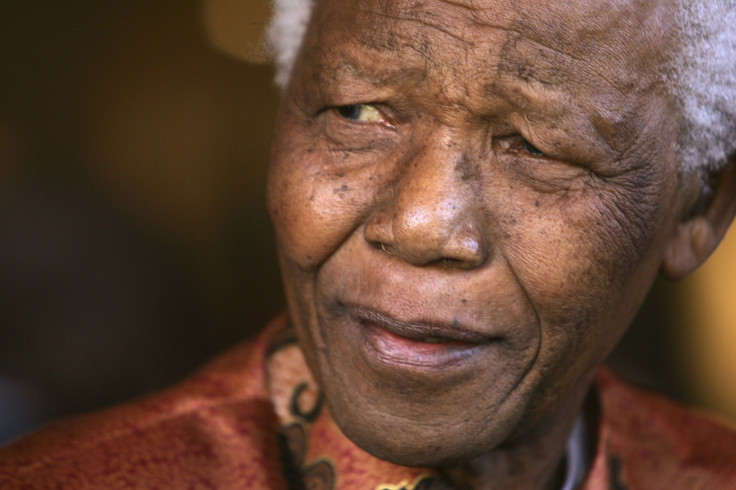Nelson Mandela Dead At 95: Obama Pays Tribute To ‘Remarkable’ South African Leader

After a life of leadership, inspiring people from the southernmost tip of Africa to powers around the globe, former South African president Nelson Mandela died at the age of 95.
The anti-apartheid leader had been receiving intensive care for months after struggling with subsequent illnesses, including a major lung infection. In September, he was removed from the hospital and taken home where he has spent his final days with his family.
Earlier this week, Mandela’s family and friends had gathered around his deathbed. “Even when there are moments when you can see he’s struggling, but the fighting spirit is still there with him,” Mandela’s daughter Makaziwe told the South African Broadcasting Corp. this week. “Tata is still with us, strong, courageous. Even… on his ‘deathbed’ he is teaching us lessons; lessons in patience, in love, lessons of tolerance,” Makaziwe said.
A Legacy Of Peace, Equality
Nelson Mandela, also known as "Madiba," the name of his South African clan, led the movement against apartheid throughout the 1950s and 1960s, and was thrown in jail in 1962 with a life sentence for opposing the dominant whites in power. He did not believe he would ever get out of jail and suffered a severe bout of tuberculosis (TB) in prison in 1988. Two years later, after surviving TB, he was released from prison at the age of 71. Working with then white South African president F.W. de Klerk, Mandela and his anti-apartheid organization, the African National Congress (ANC), dismantled what was left of the apartheid government, bringing equality to all South Africans. Mandela and de Klerk both won a joint Nobel Peace Prize for their ability to transition a government without a civil war breaking out. "This emphasis on reconciliation was his biggest legacy," de Klerk told CNN.
In his later years, Mandela spoke out about the importance of fighting tuberculosis as well as HIV/AIDS, diseases that are often linked and impact a huge number of people in sub-Saharan Africa. “We cannot win the battle against AIDS if we do not also fight TB,” Mandela said at the 15th International AIDS Conferences in 2004. “TB is too often a death sentence for people with AIDS.”
Obama’s Words
Shortly after news of his death broke, world leaders paid their tributes. President Obama spoke publicly on Thursday evening about the South African icon’s legacy, extending his condolences to the Mandela family. Obama described Mandela’s leadership as full of “grace and good humor,” as well as “an ability to acknowledge his own imperfections,” which only made Mandela “that much more remarkable.” The president emphasized that Mandela was a personal inspiration to him in his younger years, as a young Barack had joined anti-apartheid protests, and studied his words and writings. Mandela’s commitment to peaceful transition of power, as well as to “reconcile with those who jailed him” continued to inspire the U.S. president to this day. Obama said, “As long as I live, I will do what I can to learn from him.”
“No one did more in our time for the values and aspirations of the U.N.,” Ban Ki-moon, secretary-general of the U.N., said, according to a U.N. tweet.



























